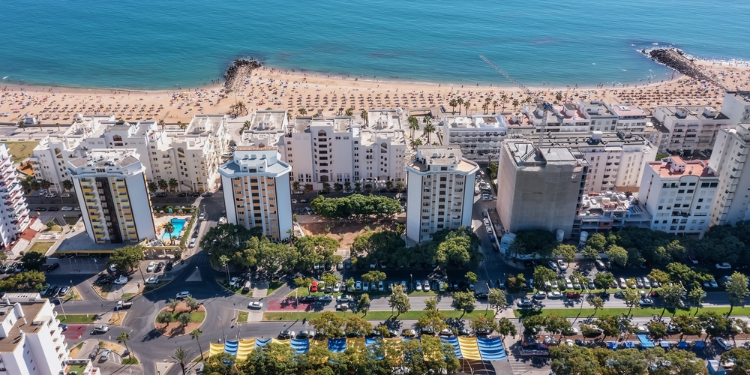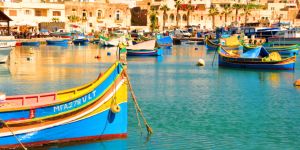
Are Golden Visas living their last days in the European Union? Spain plans to restrict the conditions under which people can obtain a golden passport. Portugal and Ireland have already announced the end of their programs intended for wealthy foreign investors. Between the countries that are abolishing their Golden Visa programs and those that are pursuing it, let's take a look at this much controversial scheme.
The Golden Age of Portuguese Golden Visas are over
On Thursday, February 16, Portuguese Prime Minister António Costa announced the end of the Golden Visa. Launched in October 2012, the scheme was set up to grant residency (and citizenship after 5 years), in return for investments in real estate, capital transfer, business creation, donation, or venture capital funds.
The very expensive Portuguese economic miracle
Let's go back to 2008. That year in Portugal, the financial crisis turned into a political one. In 2010, the country, on the verge of bankruptcy, embarked on an austerity program to reduce its public deficits. Moreover, a national strike movement broke out. José Socrates, the then-socialist Prime Minister, was pushed out. Center-right liberal Pedro Passos Coelho replaced him. Under his leadership, the Golden Visa was created with one objective: to bring in foreign capital to boost the economy.
Was the program a success? Yes, according to the figures! Between 2012 and 2021, the program is estimated to have brought 5 to 7 billion euros to Portugal. Growth picked up timidly at first (0.9% in 2014, 1.5% in 2015) before exceeding 3% in 2017. Unemployment fell from 17.5% in 2013 to 6.4% in 2019, and the country was transforming itself to the point that some were talking of a Portuguese "economic miracle". But at what cost? Did the benefits of the billions invested by rich expatriates reach the local economy?
Golden visa and real estate crisis
In Portugal, the so-called miracle was accompanied by a spectacular increase in real estate prices, especially in big cities like Lisbon and Porto. Wealthy expatriates were buying property on massive scales, driving up prices. Unfortunately, like in Spain, these rocketing prices do reflect in other spheres of the local economy, and 2022 was even a record year, with real estate prices peaking at +19%. This is the highest increase since 1991.
Interest rates were also up and got some people already talking about several lost generations. As a matter of fact, the so-called miracle turned into a nightmare for many Portuguese, who despair of ever being able to own a home. Neighborhoods are being transformed, losing their authenticity, and the Portuguese are warning of the risk of gentrification. They are also concerned about where the money is coming from, and they are not alone. Portugal and other states like Malta, Luxembourg and the Netherlands are under EU scrutiny. But when European experts published their list of tax havens in 2017, no EU country was included. The same year, the Paradise Papers affair hit the fan. The scandal shattered many investors around the world. Several European countries were then listed as tax havens, including Malta, the Netherlands and Portugal.
There are growing calls to end the Golden Visa, which is seen as an open door to money laundering. The system was definitively shut down by Prime Minister Costa's announcement, although he mentioned that there was less money laundering than speculated. Costa believes that the Golden Visa did serve its purpose, and that it's now time to commit to relieving the middle classes. He admits, however, that Portugal is going through a "housing crisis" and estimates a sum of 900 million euros to help people find housing.
Ireland ends its Golden Visa program
Irish Minister of Justice, Simon Harris, wants to be reassuring. The end of the Irish Immigrant Investor Program (IIP), equivalent to the Golden Visa, had been under consideration for a long time. "I have recommended, informed by internal and external reviews, that it is now time to close this program...”, said the Minister.
Golden Visa scheme is no longer the answer to crises
Like Portugal, Ireland introduced its Golden Visa in 2012, when the country was in a financial, banking, and economic crisis that was causing nationals and immigrants to flee, like in some other countries. According to the Central Statistics Office of Ireland, between 2009 and 2010, 65,100 people left the island against barely 30,800 newcomers. During that period, 42% of the leavers were Irish, while before the crisis, there were 42,000 departures for 110,000 arrivals (2007 figures). The 1990s strong growth had long gone, and in an attempt to regain its attractiveness, Ireland introduced The Golden Visa scheme.
The principle was the same as in other countries. Wealthy foreign investors would have access to Irish residency and all its benefits if they invested. Since its inception, the Golden Visa program has reportedly generated €1.17 billion. In 2022, the number of applications rose significantly, mainly from Chinese, American and Vietnamese nationals, who are among the top investors in Ireland through this program. In 2022, the Department of Justice validated 1,613 golden visa applications, of which 1,511 were from Chinese nationals. The other most represented nationalities are Americans and the Vietnamese.
Suspicions of tax abuse
But just like in Portugal, suspicions of money laundering loom large. In October 2022, Juan Fernando López Aguilar, president of the European Commission of Freedoms, Justice and Home Affairs, declared: "These practices must stop. We have to reorder the so-called golden visa and golden passport schemes, and the European Parliament resolution is absolutely clear." Recently, a European Parliament report revealed that the Irish Golden Visa was vulnerable to tax evasion. Following Russia's invasion of Ukraine, Ireland has suspended its golden passport program. It is now definitively shut down.
Foreign investors are off to Malta
Malta is definitively set to benefit from the end of these Golden Visa programs, and expats are grateful for that. Applications for Maltese golden visas from wealthy Americans have already risen 447% over the past five years, and a further increase is very likely to happen. Americans have thus become the leading investors on the island of Malta, ahead of the Chinese and Russians.
The principle of the Maltese golden passport remains the same: investments against the resident status. But Malta has developed two Golden visas. The first one, called "Citizenship by Naturalization for Exceptional Service through Direct Investment", offers citizenship through investment. The wealthy foreigner can invest 600,000 euros to get his Maltese passport after 3 years or 750,000 to get it after one year. The second Golden Visa is called the Malta Permanent Residence Program (MPRP). As the name suggests, it does not offer citizenship but residence. The investment required is less significant: 100,000 euros.
The Maltese authorities believe the Golden Visa is an "insurance for the future". Far from the controversy surrounding tax evasion, Malta intends to take advantage of the decisions of Portugal and Ireland.
Two other countries, namely Greece and Austria, are also likely to benefit from the situation. In Greece, the Ministry of Migration is recording a spike in Golden Visa applications, with 2,767 golden passports granted in 2022, which represents an 81% increase over 2021. Greece will also change its rules, requiring 500,000 euros investment instead of 250,000 regarding some specific regions. For example, the minimum investment required in Attica's northern and southern suburbs will increase to 500,000 euros. This explains the surge of requests coming from wealthy foreigners wishing to acquire residence before the law is enacted.
Austria could also become the new Eldorado for wealthy foreigners, even if its investment requirements are generally higher (several million euros). So, it seems that there are still a few states in resistance, on a trend that is still to be confirmed, but given the international crisis, Golden Visas are being increasingly criticized.



















